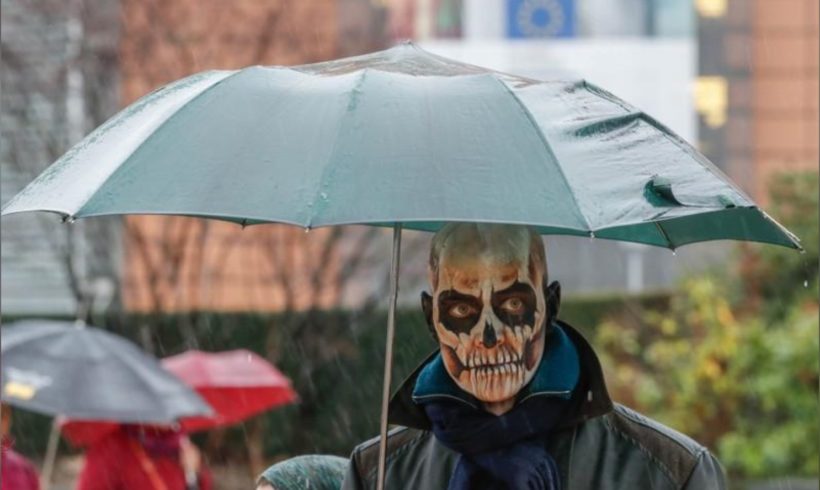Environmentalist groups said on Monday that Germany and the European Union had broken the rules when assessing the safety of the weed-killer glyphosate and that they would try to bring legal actions against the institutes involved.

Global 2000 and the Pesticide Action Network (PAN) said they had registered legal complaints with prosecutors in Vienna and Berlin, with lawsuits in France and Italy to follow. It was not clear how long it would take for the complaints to proceed, particularly as one body is pan-European and the other domestic, meaning they would potentially go through different courts.
The European Food Safety Authority (EFSA), one of the institutes named, denied the groups’ allegations that it had improperly approved glyphosphate, which EU member states last week cleared for use for another five years after a heated debate over whether it causes cancer.
The groups said EFSA and Germany’s BfR risk assessment institute had used material in their reports on whether glyphosate was safe without making clear it came from the weed-killer’s developer Monsanto.
“Both the BfR and the EFSA were in breach of the requirement obliging them to make an independent, objective and transparent assessment,” the groups said in a statement sent to Reuters.
U.S. chemical giant Monsanto had submitted the material as part of its application for regulatory approval of glyphosphate, which it developed and sold for years under the Roundup brand.
The weed-killer is now off patent and marketed worldwide by dozens of other chemical groups including Syngenta and Dow Agrosciences.
In their statement, the environmentalist groups said that under Austria’s criminal code the safety institutes’ use of “incorrect or falsified data” could amount to serious commercial fraud. They also accused the BfR and EFSA of wilfully endangering the public and the environment.
An EFSA spokesman said there was nothing new in the allegations, adding in an emailed comment: ”The allegation that EFSA committed fraud or wilfully endangered the public is something we would refute in the strongest terms.
“EFSA stands by its conclusions on glyphosate, which was carried out in full compliance with the relevant legislation in co-operation with experts from all EU Member States,” he said.
A BfR spokesman said it was now up to the prosecutors to check whether there is an initial suspicion of a criminal offence.
A spokesman for Monsanto said glyphosate meets or exceeds all requirements for renewal in the European Union. “No regulatory agency in the world has concluded that glyphosate is carcinogenic,” he said.
It was unclear what the next steps in the case might be.
Global 2000 said it could not be taken straight to the European Court of Justice (ECJ) and that the groups instead aimed to escalate it to the ECJ via a domestic court.
But the ECJ told Reuters it was not possible to take pan-European EFSA to a national court.
Europe had wrestled for the past two years over what to do with the chemical, whose license was set to expire on Dec. 15.
The chemical has been used by farmers for more than 40 years, but its safety was cast into doubt when a World Health Organization agency, the International Agency for Research on Cancer (IARC), concluded in 2015 it probably causes cancer.
The European Union agreed to roll over the license for 18 months pending the results of a study by the European Chemicals Agency, which said in March this year that there was no evidence linking glyphosate to cancer in humans.
Reporting by Shadia Nasralla; Additional reporting by Kate Kelland in London and Phil Blenkinsop in Brussels; Editing by Catherine Evans
